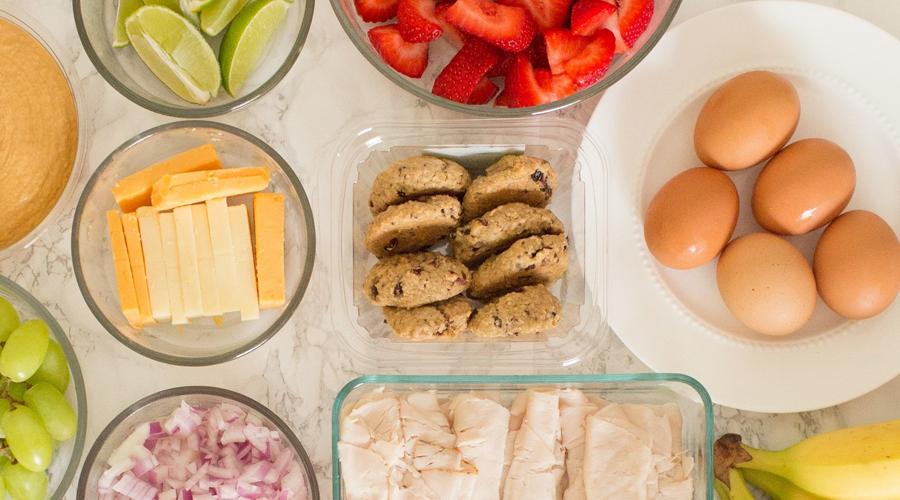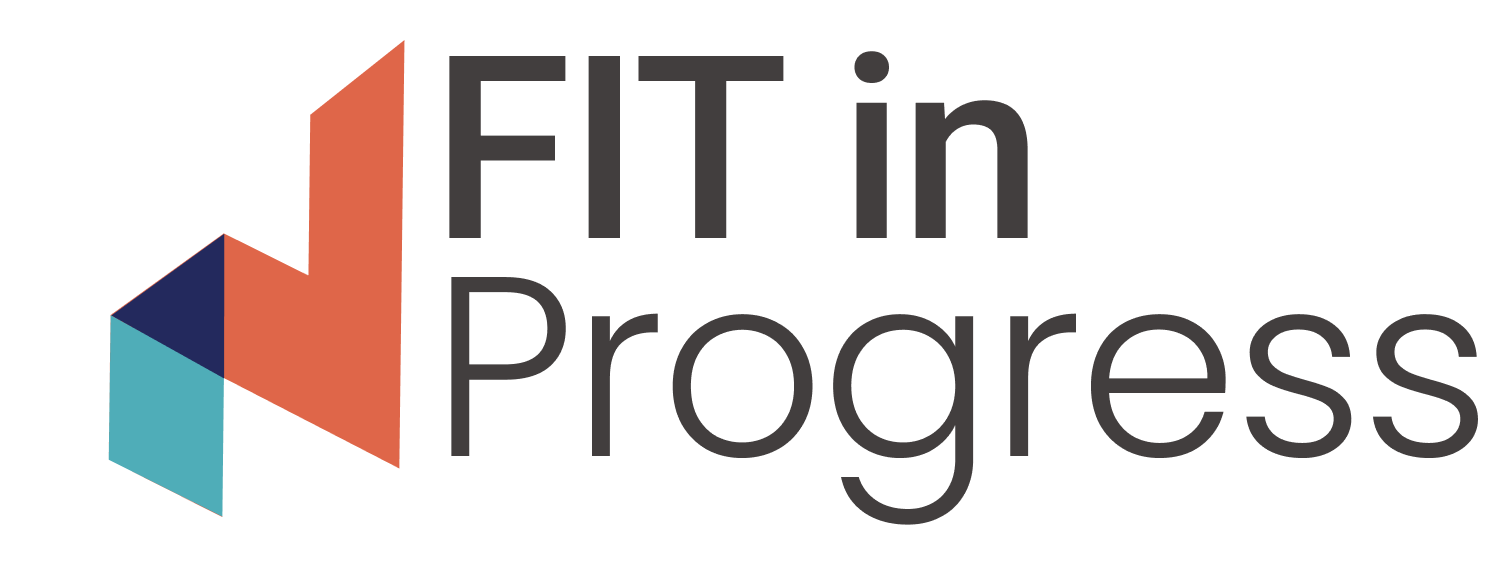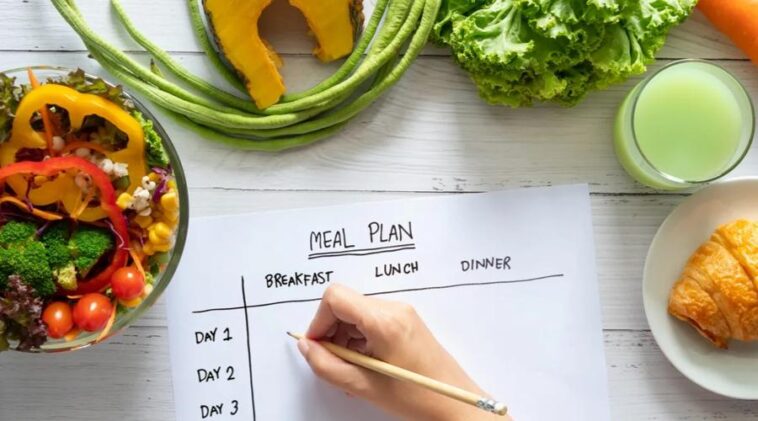As a fitness coach, I always remind my clients that workouts alone aren’t enough — your results depend just as much on what’s on your plate. A balanced diet fuels your training, supports recovery, and keeps your body running at its best. Here’s how to structure a meal plan that works for you.
Key Tips for Building a Balanced Meal Plan
-
Mix it up: Eat from every food group — vegetables, fruits, lean protein, whole grains, and healthy fats.
-
Watch portions: Even healthy food can push you over your calorie needs if you’re not careful. Measuring cups or a food scale help until you learn what portions look like.
-
Cut back on processed foods: Packaged snacks, sodas, and fast food are usually heavy on sugar, sodium, and unhealthy fats. Save them for rare occasions.
-
Lean protein first: Think chicken, fish, turkey, tofu, beans, or lentils. Protein helps maintain muscle and supports recovery.
-
Choose whole grains: Brown rice, quinoa, oats, or whole-wheat bread keep you full longer and give steady energy.
-
Use healthy fats: Avocado, nuts, seeds, and olive oil are nutrient-dense options that support joint and heart health.
-
Plan ahead: Meal prep at the start of the week keeps you on track when life gets busy.
What Is a Balanced Diet?
A balanced diet simply means giving your body what it needs — not too much, not too little. The basics include:
-
Vegetables and fruits: At least 5 servings daily for fiber, vitamins, and minerals.
-
Whole grains: Aim for half your carbs to come from whole sources.
-
Protein: Supports muscle repair and immune health.
-
Low-fat dairy or alternatives: Calcium and vitamin D for bones.
-
Healthy fats: Support hormone function and brain health.
Learn more from Harvard’s Healthy Eating Plate.

Components of a Balanced Diet
-
Carbs: Your body’s main energy source — focus on complex carbs like whole grains, veggies, and fruit.
-
Protein: Essential for recovery and strength.
-
Fats: Needed for vitamin absorption and long-lasting energy.
-
Vitamins & minerals: Regulate key body functions.
-
Water: Hydration is non-negotiable for performance.
Why Meal Planning Works
Having a plan sets you up for success:
-
Helps you avoid unhealthy last-minute choices.
-
Adds structure so you’re not skipping meals.
-
Saves money and cuts food waste.
-
Makes it easier to manage weight and track calories.
How Many Calories Do You Need?
Calories vary depending on your age, sex, weight, and activity level.
-
Women: 1,600–2,400 per day
-
Men: 2,000–3,000 per day
(Source: U.S. Dietary Guidelines)
Instead of obsessing over numbers, focus on nutrient-dense foods and adjust portions to your activity.
Cheat Meals Without Guilt
Yes, you can enjoy them — the trick is balance.
-
Plan them into your week.
-
Keep portions reasonable.
-
Compensate with lighter meals or extra activity.
-
Don’t beat yourself up — consistency matters more than one indulgence.

Counting Calories the Smart Way
If you’re tracking, be consistent:
-
Use a free app.
-
Weigh or measure your food at first.
-
Track everything — snacks, drinks, condiments.
-
But don’t go overboard; too much restriction backfires.
👉 Related: The Most Important Types Of Meal Planning.
Example Balanced Meal Plans
Here are some simple options you can rotate:
-
Breakfast: Oatmeal + banana + almond butter. Lunch: Chicken salad with avocado. Dinner: Salmon + quinoa + veggies.
-
Breakfast: Yogurt + berries + granola. Lunch: Quinoa and black bean salad. Dinner: Stir-fried shrimp + brown rice.
-
Breakfast: Toast + avocado + egg. Lunch: Turkey wrap with hummus. Dinner: Grilled steak + roasted asparagus.
The goal is variety, not perfection.
How a Nutritionist Can Help
A certified nutritionist can:
-
Assess your unique needs.
-
Customize your calorie and macro targets.
-
Build a plan around your preferences and training schedule.
-
Keep you accountable and help adjust as you progress.
If you’re serious about results, professional guidance is worth it.
Hydration and Meal Frequency
-
Water: Aim for at least 8 cups (2 liters) daily, more if you’re training hard.
-
Meals: Most people do well on 3 main meals, but if smaller frequent meals fit your lifestyle, that works too. Listen to your hunger cues.
Final Thoughts
A balanced diet isn’t about perfection — it’s about consistency. Combine nutrient-dense meals, proper hydration, and smart planning with your workouts, and you’ll feel stronger, recover faster, and reach your goals more effectively
Can I eat junk food on a balanced diet meal plan?
While it is not recommended to consume large amounts of junk food, occasional indulgences are okay as long as they don’t become a regular habit and you continue to make healthy choices most of the time.
Can I eat meat on a balanced diet meal plan?
Yes, meat can be part of a balanced diet as long as it is lean and consumed in moderation. Alternatives such as fish, poultry, beans, and lentils are also good sources of protein.
Is it important to include snacks in a balanced diet meal plan?
Including healthy snacks in a balanced diet meal plan can help keep your energy levels stable and prevent overeating during meals.
Can I drink alcohol on a balanced diet meal plan?
Moderate alcohol consumption is okay on a balanced diet, but excessive alcohol consumption can have negative health effects.
How can I make sure I am getting all the necessary nutrients on a balanced diet meal plan?
Choosing a variety of nutrient-dense foods and incorporating a variety of colors into your meals can help ensure you are getting all the necessary nutrients on a balanced diet meal plan. Consulting a nutritionist can also be helpful in creating a personalized plan.




